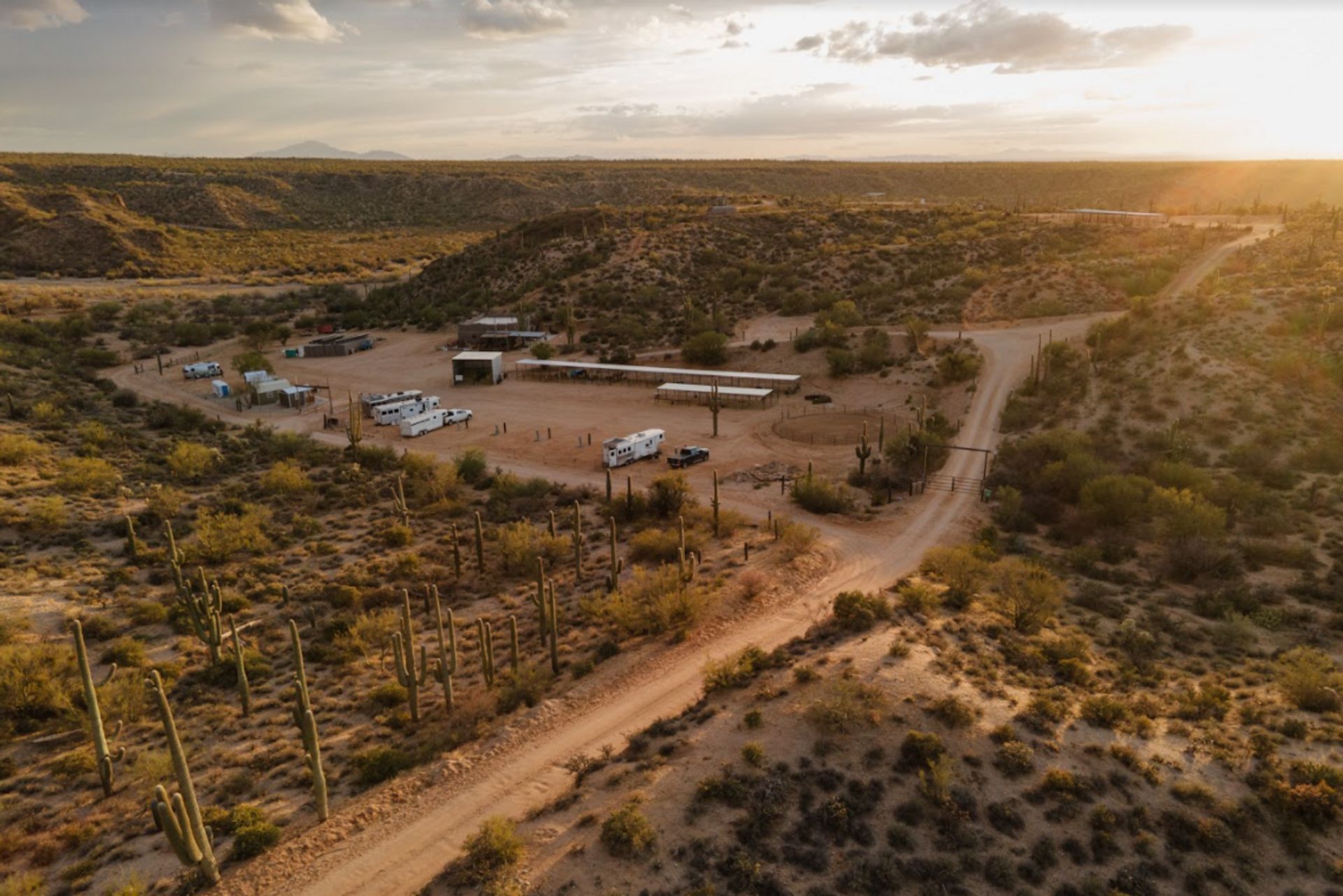A Case for Greener Camping
- Kendra Clapp Olguín

This upcoming Earth Day has me thinking of how camping impacts the environment. One of the main intentions behind camping is to enjoy the great outdoors. It only seems natural that there is an effort for greener camping and preserving the home that we’re all living in. While this list of suggestions is by no means an absolute how-to on every way to camp greener, it is a great start to changing camping behaviors to have less impact on the environment. Here are 6 ways to camp a little greener.
1. Visit Campgrounds With Environmentally-Friendly Practices

It’s been a slow process, but I am happy to share that more campgrounds are beginning to implement greener practices such as being off-grid, expanded recycling options, solar panels, and more. Here are a few campgrounds we’ve visited on the Find Your Campspot tour that has impressed us with their greener camping options:
Ride Out Ranch in Florence, AZ
Yogi Bear’s Jellystone Park™ Camp-Resort: Tower Park in Lodi, CA
Barefoot RV Resort in Myrtle Beac, SC
Verde Ranch RV Resort in Camp Verde, AZ
Yogi Bear’s Jellystone Park™ Camp-Resort: Lakes Region in Milton, NH
Rodanthe Watersports & Campground in Rodanthe, NC
OK RV Park in Moab, Utah
Sonoran Desert RV Park in Gila Bend, AZ

Ride Out Ranch
Located in beautiful Florence, Arizona, well off the beaten path. Ride Out Ranch offers some of the best scenes the desert has to offer. The Ranch has 14 full-service RV hook-ups for more extended stays as well as multiple primitive camping areas. Their horse stalls are all brand new, partially covered, and all run north to south. You and your horse will feel right at home. They also offer stays i
'22
- Outdoor Theater
- Showers
- Internet Access
- Dump Station
- Garbage
- Laundry
2. Leave No Trace

The good news is that more people are camping and experiencing the great outdoors more than ever before. The bad thing is that, if not done mindfully, it harms the environment. By abiding by the 7 Principles from the Leave No Trace Center for Outdoor Ethics, we can all help to lessen the impact camping has on the environment:
• Plan Ahead and Prepare
• Travel and Camp on Durable Surfaces
• Dispose of Waste Properly
• Leave What You Find
• Minimize Campfire Impacts
• Respect Wildlife
• Be Considerate of Other Visitors
3. Visit Local or Nearby Campgrounds

There are many benefits to camping locally, for instance, supporting a local business. Yet, when it comes to greener camping, staying nearby means less driving, which means using less gas and reducing your carbon dioxide emissions. Win, win, win.
4. Use Reusable Items

When grocery shopping for your upcoming camping trip, skip the plastic water bottles. If concerned about water quality, there are plenty of RV filtration options that will keep your water clean when camping. Be sure to remember your reusable water bottles and other reusable items such as tote bags instead of plastic bags, food containers instead of sandwich baggies, and plates/utensils instead of single-use plastic plates and utensils.
5. Rent Instead of Buying

I’m constantly on the fence about purchasing our own kayaks or bicycles, but the great news is that more campgrounds offer rentals than ever before. The even greater news is that Campspot’s “add-ons” while checking out allows you to add rentals to your reservation when booking.
6. Eat Less Meat

The UN Food and Agriculture Organization (FAO) conducted a report demonstrating that livestock is responsible for 18% of our world’s global warming emissions. They aren’t even encouraging people to fully adopt vegetarianism. By simply cutting out some of the meat in your diet, you severely lessen your personal greenhouse gas emissions.



